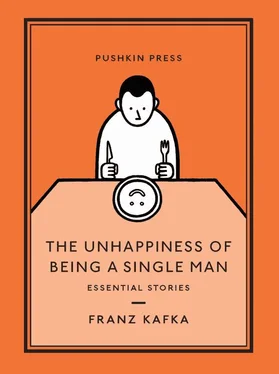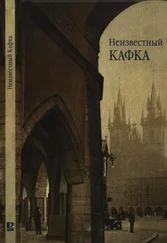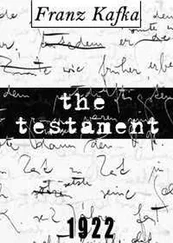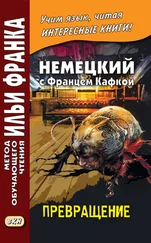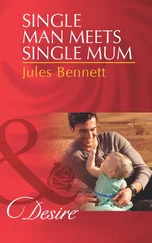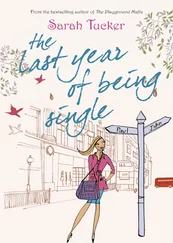But many days again went by and this, too, came to an end. A supervisor noticed the cage and asked the attendants why this useful piece of equipment had been left standing around with nothing but some rotten straw inside it; no one could say, until someone looked at the board with the numbers and remembered the hunger artist. They poked through the straw with poles and found the artist underneath. “You’re still fasting?” asked the supervisor. “When are you finally going to stop?”
“Forgive me, all of you,” whispered the hunger artist; only the supervisor, whose ear was to the bars, could hear him.
“Of course,” said the supervisor, putting a finger to his temple to show his staff what condition the artist was in. “We forgive you.”
“I always wanted you to admire my fasting,” said the hunger artist.
“And we do admire it,” the supervisor said obligingly.
“But you shouldn’t admire it,” said the hunger artist.
“All right, then we don’t admire it,” said the supervisor, “but why shouldn’t we admire it?”
“Because I have to fast, I can’t help it,” said the hunger artist.
“How about that,” said the supervisor. “So why can’t you help it?”
“Because,” said the hunger artist, and he lifted his head a little, pursing his lips as if for a kiss, so he could speak right into the supervisor’s ear and make sure nothing was lost, “I couldn’t find a meal I would have liked to eat. If I’d found one, believe me, I wouldn’t have made a fuss, I’d have eaten till I was full, just like you or anyone else.” Those were his last words, but in his broken eyes there remained the firm, albeit no longer proud, conviction that he would go on fasting.
“Get this cleared up!” said the supervisor, and they buried the hunger artist together with the straw. In the cage they put a young panther. Even the most stolid attendants felt the relief of seeing this wild animal throwing himself around the long-deserted cage. He lacked for nothing. The keepers brought him the food he liked as a matter of course; he didn’t even seem to miss his freedom; his glorious body, endowed almost to bursting with all it needed, seemed to carry its own freedom within itself; it seemed to lurk somewhere in the panther’s jaws; and the joy of life steamed out of his mouth with such force that the spectators felt they could barely hold their ground against it. But they braced themselves, crowded around the cage and never wanted to leave.
WE’RE LIKE TREE TRUNKS in the snow. They seem to stand on its surface, as if a little push would be enough to knock them over. No, you can’t do that, because they’re fixed firmly to the ground. But look, even that is illusory.
WE’VE GOT A NEW LAWYER, a Dr Bucephalus. There’s not much in his appearance to remind you that he used to be Alexander of Macedon’s war horse. But if you know his background, there are a few things you notice. That said, I did recently see even a pretty simple-minded court usher admiring our lawyer with the practised eye of a regular racegoer as he bounded up the stairs, lifting his knees high and letting his steps ring out on the marble.
In general, the office approves of Bucephalus having been taken on. With a surprising degree of sympathy, people say that the way society is arranged today puts Bucephalus in a difficult position and for that reason, as well as on account of his historical significance, we should be as accommodating as possible. Nowadays—this is something no one can deny—there is no Alexander the Great. It’s true that some people still know about killing; nor is the skill needed to spear a friend across the banqueting table wholly a lost art; there are plenty of people who find Macedonia too small and curse Philip, his father—but there is no one, no one, capable of leading us to India. Even in those days, the gates of India seemed unreachable, but the direction was given by the king’s sword. Today the gates are altogether elsewhere, higher and further off; no one is pointing the way; it’s true that lots of people have swords, but only to wave them about, and anyone who tries to follow them with his eyes ends up bewildered.
That’s why it’s maybe best to do what Bucephalus has and bury yourself in the law books. Free, his sides no longer being gripped by his rider’s thighs, under restful lamplight far from the clamour of Alexander’s battles, he reads and turns the pages of our dusty old books.
IT SOMETIMES SEEMS as if the defence of our country has been quite badly neglected. Until recently, we never thought about it, and just got on with our business; but the events of the past few days have got us worried.
I run a shoemaker’s on the square in front of the royal palace. I’d just opened my shop for the morning when I saw that that every street was guarded by armed men. They’re not our soldiers: it turns out they’re nomads from the north. In some way I can’t get my head around, they’ve pushed forward into the capital, even though it’s so far from the border. In any case, they’re here, and every morning it looks like there are more of them.
Since they’re nomads, they camp under the open sky and look down on living in houses. They’re always busy sharpening their swords, filing their arrows and practising on horseback. They’ve turned this peaceful, painstakingly clean public square into a stable. We do sometimes try to go out of our shops to clear away at least the worst of the mess, but it’s a pointless effort and it puts us in danger of being trampled by the wild horses or injured by their riders’ whips.
There’s no talking to the nomads. They don’t speak our language and barely have one of their own. The noises they use as speech make them sound like crows. All you hear these days is that crow-like croaking. Our way of life, our laws, are incomprehensible to them, and irrelevant. That must be why they’re also hostile to any attempt to communicate with sign language. You can talk till you sprain your jaw and gesture till you dislocate your wrists, they won’t have understood you and they will never understand you. They often just grimace; then you can see the whites of their eyes rolling and foam spilling out of their mouths, but they’re not trying to express anything, nor even to frighten you; they do it just because that’s how they are. What they need, they take. You can’t really say that they use force. When they appear, you step aside and let them have everything.
They’ve taken many a good piece from my stores as well. But I can’t complain when I see, for example, how bad it is for the butcher across from me. As soon as he brings in any supplies, it’s all torn away from him and guzzled by the nomads. Even their horses eat meat; you’ll often see a rider lying next to his horse with both of them tucking into the same piece of meat, one from each end. The butcher is too afraid to stop bringing in the deliveries. We understand why, so we’ve scraped together some money to support him. If the nomads stopped getting their meat, who knows what they’d think of doing; that said, who knows how they’ll act even if they do get their meat every day.
The other morning, the butcher thought he could at least save himself the work of chopping up the meat and just had a live ox brought in. He can never do that again. I had to go and lie on the floor at the very back of the workshop for more than an hour, with all my clothes, sheets and pillows piled on top of myself, just so as not to hear the ox’s screaming; the nomads jumped on it from all sides and tore out chunks of warm meat with their teeth. It was quiet for a long time before I dared go outside again; they were sprawled around the ox’s carcass like drinkers around a barrel of wine.
Читать дальше
